Earthquakes -> oil
Oil
Oil is a type of fossil fuel that is formed from the remains of plants and animals that lived millions of years ago. It is a non-renewable resource, meaning that once it is used up, it cannot be replaced. Oil is used for a variety of purposes, including as a fuel for cars, airplanes, and ships, as well as in the production of plastics, lubricants, and chemicals.
Formation of Oil
Oil is formed from the remains of plants and animals that were buried under layers of sediment millions of years ago. Over time, the heat and pressure from the layers of sediment caused the organic matter to break down and form hydrocarbons, which are the primary components of oil.
Extraction of Oil
Oil is typically extracted from underground reservoirs using drilling techniques. Once the oil is brought to the surface, it is refined to remove impurities and separated into different components such as gasoline, diesel, and kerosene.
Environmental Impact
The extraction and use of oil can have significant environmental impacts, including air and water pollution, habitat destruction, and contribution to climate change through the release of greenhouse gases.
Study Guide
- What is oil and how is it formed?
- What are the primary uses of oil?
- How is oil extracted from underground reservoirs?
- What are the environmental impacts of oil extraction and use?
- Why is oil considered a non-renewable resource?
[Oil] Related Worksheets and Study Guides:
.◂Science Worksheets and Study Guides Seventh Grade. Earthquakes
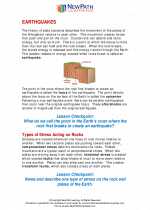
 Activity Lesson
Activity Lesson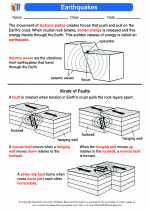
 Worksheet/Answer key
Worksheet/Answer key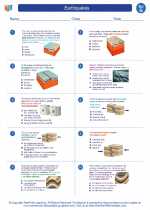
 Worksheet/Answer key
Worksheet/Answer key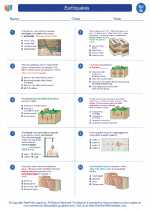
 Worksheet/Answer key
Worksheet/Answer key
 Worksheet/Answer key
Worksheet/Answer key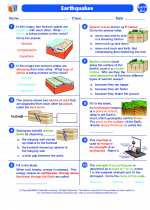
 Worksheet/Answer key
Worksheet/Answer key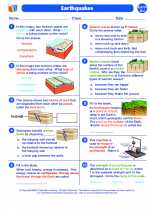
 Vocabulary/Answer key
Vocabulary/Answer key
 Vocabulary/Answer key
Vocabulary/Answer key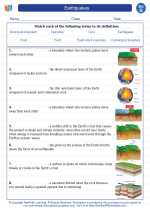
 Vocabulary/Answer key
Vocabulary/Answer key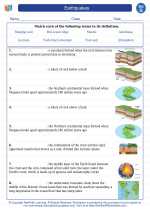
 Vocabulary/Answer key
Vocabulary/Answer key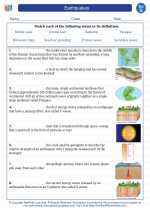
 Vocabulary/Answer key
Vocabulary/Answer key
 Vocabulary/Answer key
Vocabulary/Answer key
 Vocabulary/Answer key
Vocabulary/Answer key
